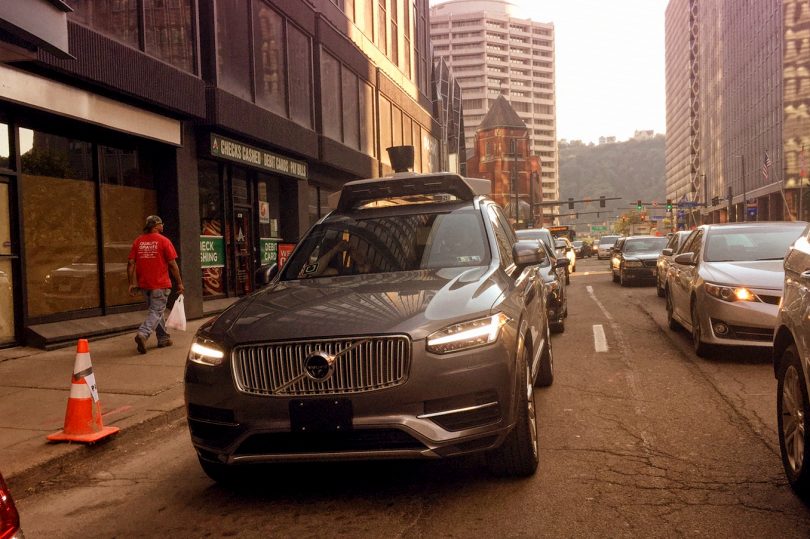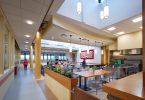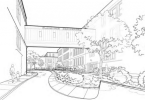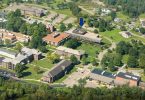Community leaders, researchers looking at impact of self-driving cars on mobility, the environment, bicyclists, access and social equity
A hotbed of autonomous vehicle technology development and testing, Pittsburgh isn’t just awed by new technology on the streets. As society wrestles with how autonomous vehicles will change transportation, Pittsburghers have gotten to work researching the impacts of self-driving cars on mobility, the environment, bicyclists, access, and social equity.
Well before driverless car technology began attracting national media attention, researchers at Pittsburgh’s Carnegie Mellon University were making history with new driverless technologies. The largest of these successes was winning the $2 million, 2007 Defense Advanced Research Projects Agency (DARPA) Urban Challenge with a self-driving SUV called “Boss.”
Today, several Pittsburgh-based companies are racing to achieve dominance in the rapidly developing autonomous vehicle market, developing new technologies in laboratories, while testing current iterations on Pittsburgh’s urban streets.
- Uber chose Pittsburgh as the location for its Advanced Technologies Center (ATC), citing the city’s admittedly confusing street layout, rugged topography, and weather challenges as an ideal place to test its fleet of self-driving vehicles. Additionally, in March 2017, Uber announced it is looking to double the size of its autonomous vehicle test track, storage, and office space on a former Pittsburgh brownfield site.
In 2017, in partnership with Pittsburgh’s Advanced Technologies Group, Uber launched a new feedback protocol giving fellow road users the opportunity to share experiences and observations related to autonomous vehicles directly to the company via a new email address, aroundtown@uber.com. - Argo AI, an artificial intelligence company established to tackle self-driving vehicle technology, has established headquarters in Pittsburgh with a $1 billion investment by Ford. Argo was founded by former engineers at Uber, Google, and Carnegie Mellon University.
- Self-driving startup Aurora Innovation, launched in 2017 by developers formerly with Google, Tesla, and Uber—and chose to place offices in Pittsburgh.
- Pittsburgh teams at Delphi Labs (which acquired Ottomatika, a Carnegie Mellon University (CMU) spinoff, in 2015), are building what they describe as some of the “most sophisticated automated driving prototypes in the industry.” Delphi also is developing software and system solutions that enable autonomous vehicles to predict objects around them and know their exact location using landmarks.
- Simultaneously, research efforts by Dr. Costa Samaras, Assistant Professor in Civil and Environmental Engineering at Carnegie Mellon University, are exploring the social, financial, and environmental implications of autonomous vehicle technology. Dr. Samaras’s research looks at potential increases in travel by non-driving populations and the costs and benefits of partially automated vehicle collision avoidance technologies.
- And in 2016, global engineering firm BuroHappold co-hosted a design sprint in Pittsburgh, the first in the United States. In partnership with Green Building Alliance and Envision Downtown, architects, urban planners, roboticists, and sustainability experts reimagined Pittsburgh’s built environment post private vehicles. Groups took a decidedly holistic approach, proposing greened pedestrian boulevards, a new Connected Autonomous Residential Experience (CARE) zoning overlay, Bus Rapid Transit lanes, and mobility hubs– all transforming streets into a new urban fabric.
- Bike Pittsburgh recently conducted a survey to determine how the Pittsburgh public views their experiences sharing the road with autonomous vehicles as walkers or bikers. The survey found that among Bike Pittsburgh membership, only about 10% of those with experience sharing the road and 10% of those without experience sharing the road with AVs while riding a bicycle, disapprove of Pittsburgh as an autonomous vehicle test bed. Of the public responses, about 20% of those who have no experience riding alongside autonomous vehicles disapprove, while 16% of those who have interacted with AVs disapprove. These results indicate that the more experience people have with AVs, the more they are likely to accept them. Read the full survey results at www.bikepgh.org/resources/save/survey.
Media Contacts:
- Timothy McNulty, Communications Director, City of Pittsburgh
412-660-1999 / timothy.mcnulty@pittsburghpa.gov - Steven Baumgartner, Associate Principal (Pittsburgh), BuroHappold, Baumgartner@BuroHappold.com
- Costa Samaras, Assistant Professor in Civil and Environmental Engineering, Carnegie Mellon University, csamaras@cmu.edu /412-268-165 / Google Scholar, @CostaSamaras







